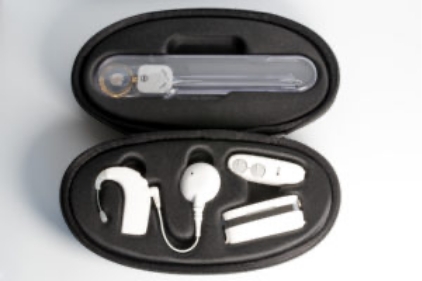Cochlear Implant
Programming
Different hearing losses each bring their challenges. Some hearing losses can be corrected with standard amplification. Our team has expertise in assessing and treating these hearing losses and program private cochlear implants.
What is a cochlear implant?
Cochlear implants are designed to enable people with a significant hearing loss, who derive limited benefit from hearing aids, to access sound. A cochlear implant electrically stimulates the hearing nerve, thereby bypassing the damaged parts of the inner ear. This signal is sent to the brain to be interpreted as sound.
A cochlear implant has both internal and external parts.
Internal part:
The internal part is known as the electrode array or implant. It is inserted surgically, usually under general anaesthetic. It consists of:
- A receiver package with a magnet placed under the skin above the ear
- An electrode array placed in the cochlea in the inner ear
External part:
The external part is known as the sound processor. It is worn behind the ear and consists of:
- A sound processor with a microphone to pick up sounds
- A cable and circular coil connected to the sound processor that is held on the head by a magnet, which enables sounds to be transferred to the electrode array
Who may benefit from a Cochlear Implant?
Both children and adults with a significant hearing loss, who receive limited benefit from hearing aids, may benefit from cochlear implants. A cochlear implant may be suitable for those with a congenital or acquired hearing loss, but will depend on factors such as the anatomy of the hearing system and exposure to sound in the past.
Possible outcomes using a cochlear implant?
All implant users have different experiences of sound through their cochlear implants.
A cochlear implant may help with:
- Hearing sounds in the environment
- Hearing speech
- Improving the ease of listening
- Improved hearing in background noise
- Increased access to sounds in music
- For children implanted at an early age, developing spoken speech and listening skills
- Monitoring the pitch and volume of your own voice
- For some, using the telephone


